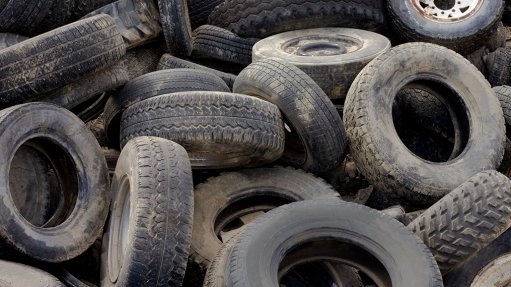World domination through the Internet
About 43 years ago, my friend Charles and I decided to see if we could make the letter ‘E’ appear on an oscilloscope screen.
I could easily explain to you how we did it by varying the Z intensity of the oscilloscope, the time base, the ‘Y’ deflection . . . But would you really care?
The point of the matter is that there is scarcely any amazement that, when you push a key on a keyboard, the corresponding letter appears on a screen in front of you. I use this to illustrate how fast and how far computers have gone. Even more, how much we have come to rely on the Internet.
It is a simple fact that, in my office, some of the staff cannot add a list of numbers manually and get it right. Very often, they will produce a list of numbers with a total at the bottom. Very often, I can see that the total is incorrect. I just scan the list and I know, hey, that is wrong. This is because I can add a list of numbers manually. But some of the staff cannot and, so, when they enter a number like R25 070,00 and not R25 070.00 then the spreadsheet fails to include the former number and they do not notice. They are heavily reliant on calculators – they cannot add without them.
They are also heavily reliant on the Internet. If I ask them what the weather is going to be on Friday (so we can do field measurements at a site), they look it up on Google. If I asked them what is a recipe for plum jam, they look it up on Google. If I asked them how many people were killed in the atom bombs explosion at Hiroshima, they look it up on Google (having first asked me how to spell Hiroshima).
Now Google does not charge for the service. It is just there. They say that Google makes its money from advertising but I do not get it. The other day, I wondered what would happen if, suddenly, overnight, all the search engines stopped working. How much knowledge would be retained among the present population of the world? It would depend on the nature of the communities involved. Some, those particularly not heavily dependent on the Internet would have no problems. Others would feel acutely the loss and, if the Internet itself was withheld, withdrawal symptoms from all the social media.
So, let us imagine that this happened. And that then these services were gradually restored but on payment of a monthly tribute. How many people would sign up? I guess quite a lot. And then, having had to pay for information, the users would regard the information as being very accurate. Thus, the users could be fed information which was fundamentally inaccurate but believe it to be true. When this happens, whoever is doing this can easily start to dominate the world.
Now, before you toss this magazine into wastepaper basket with a snort of disgust, consider the following: largely because of the Internet, it was predicted that, in the first minute of the year 2000, computer systems would crash, aircraft would fall out of the sky, trains would crash, and so on. Nothing happened. But the people who disseminated this information claimed it to be true – largely because they could (and did) make a fortune out of offering to fix a problem that did not exist.
Then there was bird flu – again not true – but people who disseminated information stood to make, and did make, a fortune out of selling an oral vaccine for a nonexistent illness. Further, it cannot have escaped anybody that climate change is big business. It is morally impossible for most governments to say “climate change does not exist”. Consequently, they have to put some money in that direction if they wish to retain the vote of the climate change believers. And the money is huge. One can see a trend whereby we are in an experimental stage of manipulating the information on the Internet to control the people who use it. The future will be interesting.
Article Enquiry
Email Article
Save Article
Feedback
To advertise email advertising@creamermedia.co.za or click here
Comments
Press Office
Announcements
What's On
Subscribe to improve your user experience...
Option 1 (equivalent of R125 a month):
Receive a weekly copy of Creamer Media's Engineering News & Mining Weekly magazine
(print copy for those in South Africa and e-magazine for those outside of South Africa)
Receive daily email newsletters
Access to full search results
Access archive of magazine back copies
Access to Projects in Progress
Access to ONE Research Report of your choice in PDF format
Option 2 (equivalent of R375 a month):
All benefits from Option 1
PLUS
Access to Creamer Media's Research Channel Africa for ALL Research Reports, in PDF format, on various industrial and mining sectors
including Electricity; Water; Energy Transition; Hydrogen; Roads, Rail and Ports; Coal; Gold; Platinum; Battery Metals; etc.
Already a subscriber?
Forgotten your password?
Receive weekly copy of Creamer Media's Engineering News & Mining Weekly magazine (print copy for those in South Africa and e-magazine for those outside of South Africa)
➕
Recieve daily email newsletters
➕
Access to full search results
➕
Access archive of magazine back copies
➕
Access to Projects in Progress
➕
Access to ONE Research Report of your choice in PDF format
RESEARCH CHANNEL AFRICA
R4500 (equivalent of R375 a month)
SUBSCRIBEAll benefits from Option 1
➕
Access to Creamer Media's Research Channel Africa for ALL Research Reports on various industrial and mining sectors, in PDF format, including on:
Electricity
➕
Water
➕
Energy Transition
➕
Hydrogen
➕
Roads, Rail and Ports
➕
Coal
➕
Gold
➕
Platinum
➕
Battery Metals
➕
etc.
Receive all benefits from Option 1 or Option 2 delivered to numerous people at your company
➕
Multiple User names and Passwords for simultaneous log-ins
➕
Intranet integration access to all in your organisation


















